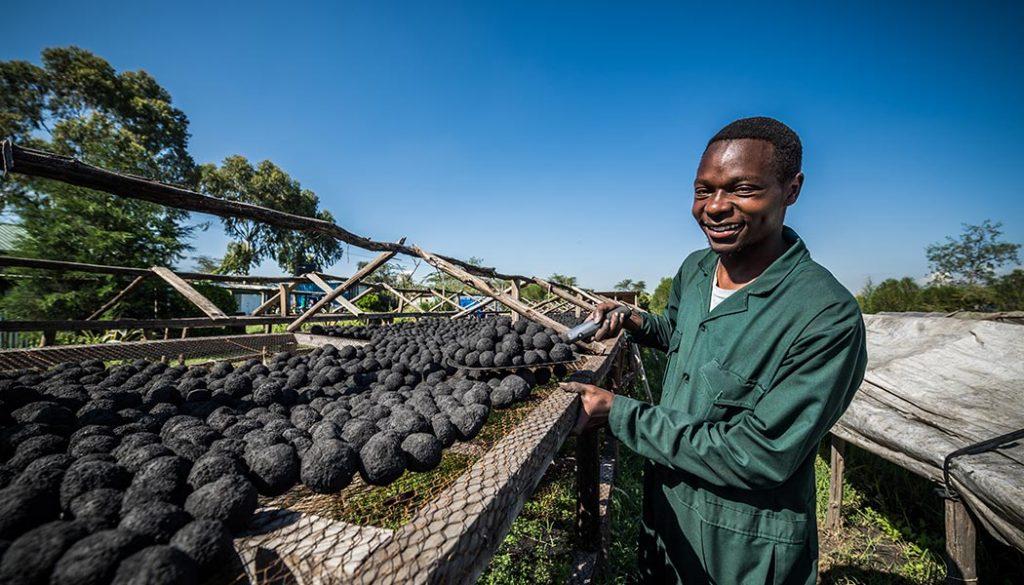
A quick glance through the 17 Sustainable Development Goals (SDGs) makes one thing clear: water is the through line. Even when not explicitly stated, the lack of access to safe and clean water puts all of the other SDGs at risk. Transform, an initiative supported by Unilever, the U.K.’s Foreign, Commonwealth & Development Office and EY aims to address the issue directly by supporting on-the-ground entrepreneurs in South Asia and sub-Saharan Africa to help solve their communities’ water challenges.
A renewed focus on clean water
According to the World Health Organization (WHO) and UNICEF, in 2020, one in four people lacked access to safe drinking water in their homes and half of the global population lacked access to safe sanitation. Further, during the COVID-19 pandemic, a third of the population could not safely wash their hands in their homes, a basic function proven to prevent the spread of the virus as well as other infectious illnesses. Many of the challenges require community-specific solutions, and that is where the support from Transform can bolster local entrepreneurs’ efforts.
The Transform initiative supports entrepreneurs through funding, assistance in scaling operations, removing barriers to behavioral change and additional services. Participating entrepreneurs focus on improving access to reliable sources of clean water and sanitation to low-income households in developing countries. Since its inception in 2015, the initiative has provided almost $49 million in funding and business support to more than 60 enterprises in 13 countries, reaching 7 million people — with a goal to have a positive impact on 15 million citizens.
While the focus has to this point been on South Asia and sub-Saharan Africa, the initiative recently announced that they are expanding their program to South America with a new partner — the Global Solidarity Fund. The work will start in Colombia, focusing on building an inclusive workforce centered on migrants and refugees. While lack of access to safe water is not as widespread in South America, significant water challenges remain, so there is plenty of room for Transform to grow in the region.
A track record of success, from Kenya to India
Because water is such an essential component of health, emotional and economic well-being, and security, Transform has supported several different projects over the years, providing funding and logistical, product and marketing support.
Spring Health focuses on providing reliable water distribution in the eastern Indian state of Odisha, a region struggling with heat waves and extreme water scarcity. The organization’s model is based on innovative purification and a strong rural distribution network through shops and kiosks in small villages and profit-sharing with local entrepreneurs that can deliver and transport clean water to homes using jerry cans.
During the pandemic, Spring Health also increased the distribution of hand sanitizer and disinfectants alongside safe drinking water. Transform has supported Spring Health’s work by providing new products at a low cost and helping create programs in schools to increase awareness around safe drinking water. Since 2019, Spring Health has created 180 jobs and supported 92 entrepreneurs, reaching 18,000 households (90,000 people) with a goal to reach 2 million customers.
Another Transform-supported project that crosses the intersection between several of the SDGs is Sanivation in Kenya, addressing the sanitation end of the clean water spectrum. Sanivation currently operates in eight cities in Kenya, working with the World Bank, African Development Bank and local water utilities. The company builds, owns and operates waste-to-value treatment plants (such as the one shown below), which processes pasteurized human waste with biomass to generate sustainable fuels to help power local industry.

Transform supported Sanivation with a trial using their produced fuel to replace firewood in a tea processing plant. Using firewood as a fuel has multiple environmental impacts, such as land and forest degradation — which can lead to water scarcity — and poor air quality as well as exacerbate gender inequality. Over two years, Transform said that the use of biomass for fuel at the factory has saved 21,000 trees, cuts costs and provided 30 percent of the revenue for a wastewater treatment facility.
Safe water: a global and local challenge
Access to safe water is both a global and intensely local challenge. Scaling up local water solutions through innovation and on-the-ground know how will continue to be essential in converting water crises into water successes. Local entrepreneurs, who see the challenges and the opportunities firsthand, are well suited to figure out how to improve the community based on the community’s needs. Often, however, they are underfunded or fly under the radar. Initiatives like Transform will remain essential to support those efforts because macro problems often require micro solutions.
Image credits: Transform

Kate is a writer and policy wonk, with a focus on water, clean energy, climate change and environmental security. She spent over a decade running energy-water nexus and energy efficiency programs at Environmental Defense Fund as well as time at the U.S. Departments of Energy and Defense, U.S. Government Accountability Office, and state and federal legislatures. She serves as an Advisory Board member of CleanTX, which aims to accelerate the growth of the clean tech industry in Texas.














